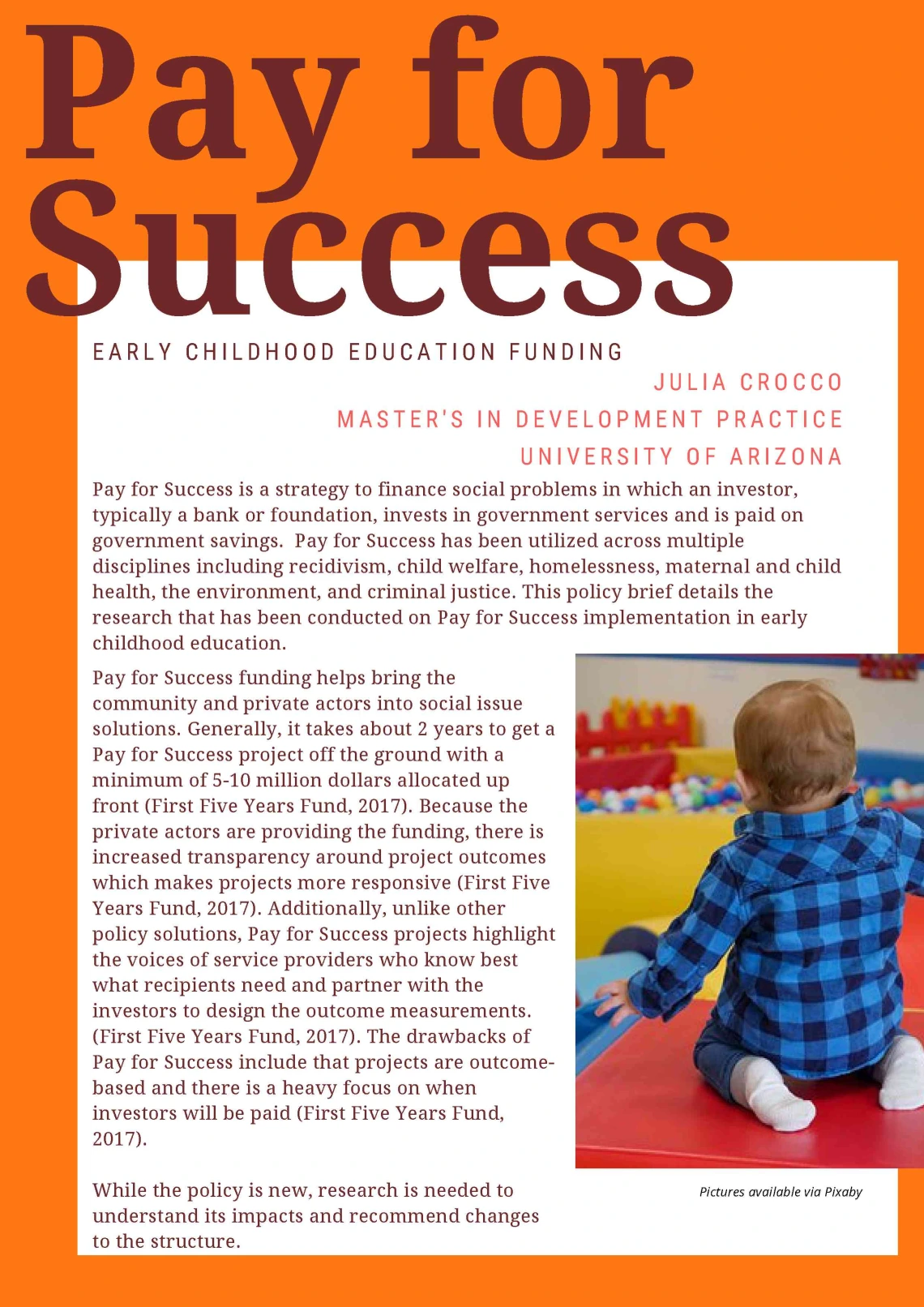"Pay for Success Programs: Early Childhood Education," by Julia Crocco


"Pay for Success" is a strategy to finance social problems in which an investor, typically a bank or foundation, invests in government services and is paid on government savings. Pay for Success has been utilized across multiple disciplines including child welfare, homelessness, maternal and child health, the environment, and criminal justice.
This policy brief by MDP Student Julia Crocco details the research that has been conducted on Pay for Success implementation in early childhood education.
"Pay for Success involves an investor, typically a bank or foundation, investing in a social solution. The money is given to an intermediary which assists in delivering the funds to service providers. Criteria are established at the outset to determine what and when th egovernment will pay investors, which is monitored by a third-party evaluator. One of the features of the Pay for Success model is the need to quantify savings or outcomes to produce success payments."
To read more, please visit the full brief attached below.

